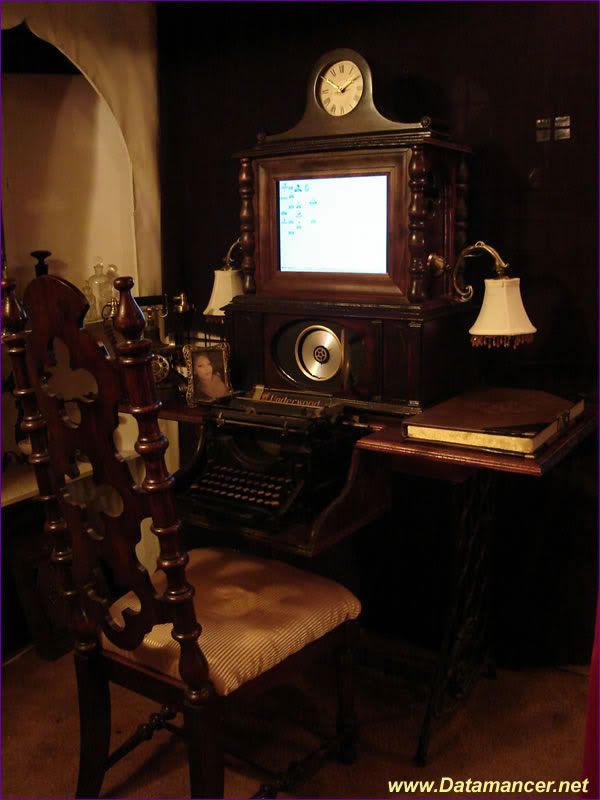E is for Edit -- aka hacking away at the parts of your soul bonded to your MS and setting them ablaze. Nothing's perfect the first time out. Even if your MS is clean, there are things that can be tightened or adjusted to accommodate a new sub-plot that didn't exist when you wrote chapter 1. Continuity needs to be checked (Are the hero's eyes blue in each mention? Did the villain drive off in a Vette, but climb out of a Camaro? No, a Welsh accent isn't "basically the same thing" as an English one.)
E is for Editor -- there's more than one kind. You can hire a copy editor to go through your book and tell you what's wrong with it grammatically and structurally. Some people do this prior to submission, but it's expensive and somewhat counterproductive. If it takes a professional editor for you to produce a clean MS, then what are you going to do when an agent or In-House Editor (the other kind of editor) asks for revisions? The In-House Editor will make suggestions on the book on behalf of the publishing house. Maybe there's a specific voice the house tries to maintain or an image they don't want to deviate from, or maybe your book is a bit too close in one scene to another, so they may ask you to revise it.
E is for Effort -- even when it's coming easy, there's still effort involved. The amount of conscious effort you put in will affect the final product.
E is for E-book -- you know, that "thing" destined to save/destroy writing for future generations. E-books are not new, people. They've been around for like 20 years. Kindle, nook, Sony's e-reader, et al have made them more popular, but they're not some new thing to fear. (And they're not nearly as popular outside the US as they are inside.) And even with E-books, those getting the largest market share are still the e-versions of already in print commercial novels.
(I'll say more about self-e-publishing on the letter "s", but the short version for here is -- know what you're getting into and realize the risk involved when hit submit. If you've got that down, then more power to you and I hope you sell a million.)
Which segues me into --
E is for Expectations -- whichever route you choose, commercial or self-publishing, know your odds and set your expectations accordingly. YES, you should absolutely try and beat the odds. ABSOLUTELY believe in your writing enough to think it rocks, but understand the hurdles that come with both types of publishing.
E is for Expressive, Expressions, Elation, Evil, Ending, Era, and Envy --
The human face is
Expressive (Don't believe me? Watch Lie to Me and see how many expressions your face can make without your conscious notice.) There are glowers, glimmers, and grimaces, smirks, sneers, and smiles - all are specific descriptions with specific connotations. Figure out what it is you want to convey and use the best expression you can find to fit the mood.
Then there are "
Expressions" of the sort that means colloquialism. They're a great way to add voice to a piece - certain things get said down south that would make a northerner's eyes spin in their sockets and vice versa. There are benign sayings in American slang that would make lovely old British ladies turn red, cover their grandchildren's ears and smack you on the head with their hand bag. (Brits don't wear fanny packs on vacation, nor does the mention of anything called "Spunk"meyer carry the connotation of a sweet treat...) Be careful. Know your audience. (This is where those lovely in-house editors come in handy, too, btw.)
Elation will ebb and flow through your writing process so often, you'll begin to wonder if you aren't suffering a chemical imbalance. The shiny new idea, the end of the novel, getting those first requests for partials and fulls - all make your endorphins soar, but you have to be cautious and not let the moments where the story hits a snag or you're sick of reading the full through to edit
(AGAIN!!!) or those first two requests end in rejections crash your enthusiasm so far into the basement you're tempted to give up. Sometimes you need to walk away and do something else. No one can hold a muscle tensed forever, and that's what you're doing when you write. It's okay to slow down and relax.
Evil comes in many shapes, colors and degrees. Know which one fits your story best. If it's not geared toward a mustache -twirling Dastardly Dan, then don't force one into the story just to have someone "really" evil. Subtle evil, like a cold finger running over the base of your neck can be just as dangerous, and even more terrifying.
Endings MUST fit the rest of the story. If you have a last minute save, then every other minute should have been building toward the possibility of that save happening. New powers, new characters, sudden personality shifts so that a passive character turns into a bad ass or the bad ass turns into a coward for no reason, non-conflict in place of a battle scene -- none of these do your characters any favors and they void the trust you've built with your readers.
Consider your
Era. Whether you're writing meticulous historical or a fun, anachronistic steampunk, there's a certain flavor you need to match for the writing to come off as authentic. You need to know the voice and the social mores, not just play with cool costumes and inventions. (While your feisty heroine may run around with a page boy haircut and leather pants, that doesn't mean that the high society ladies will automatically approve of their upper crust son or daughter tagging along for the adventure.)
Beware Envy; it will rot your best efforts from the inside out. So what if Author A got a major multi-book deal? You don't write their genre, so it's not comparable? Who cares if Author B landed an agent after one query in less than 24 hours? That agent doesn't rep your genre anyway? There are so many variables present in every book deal that to try and compare yours to one that's already happened is only going to make you hate yourself and your writing. Others' success means nothing in relation to you. It doesn't make their book better or worse; it just means they found the combination that worked for them
Next time, F is for: First pages, Fresh voice, and Framing...



